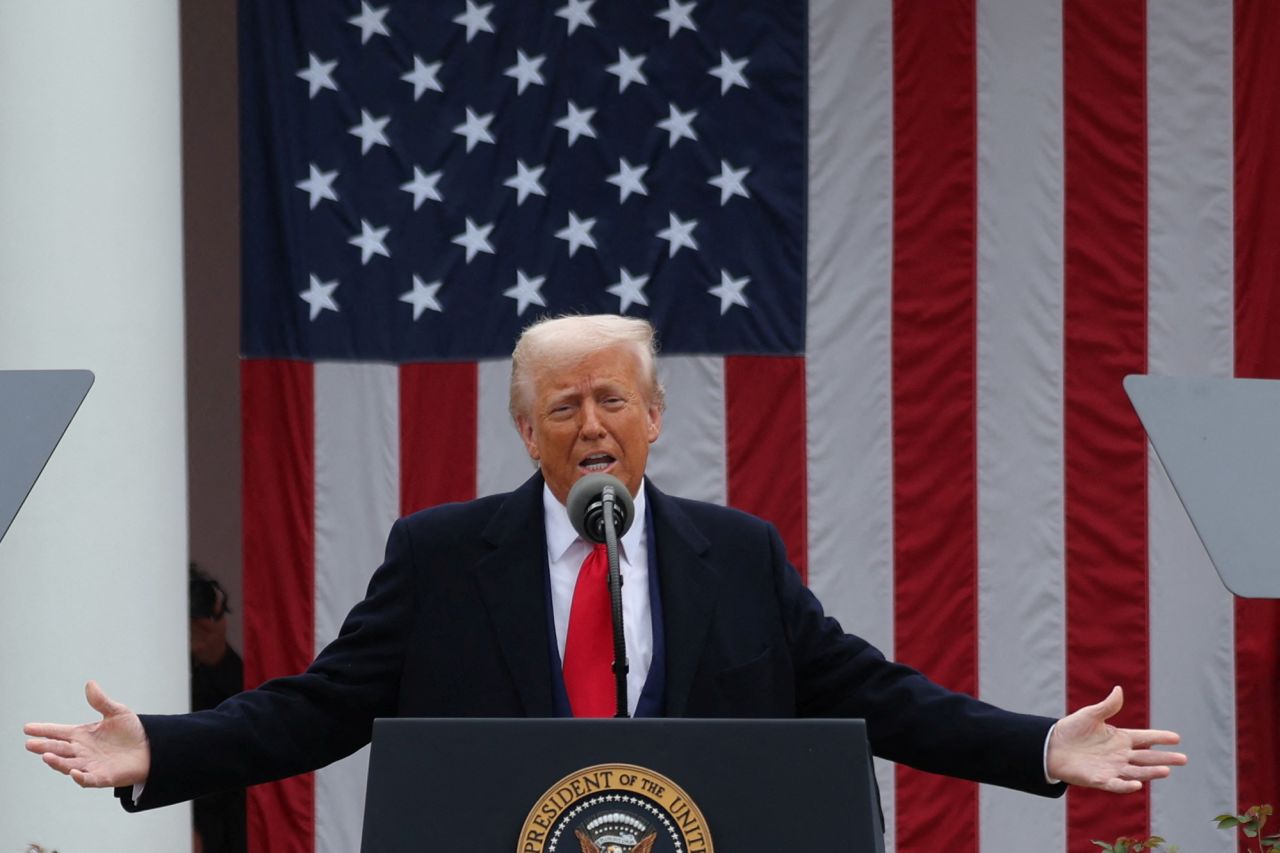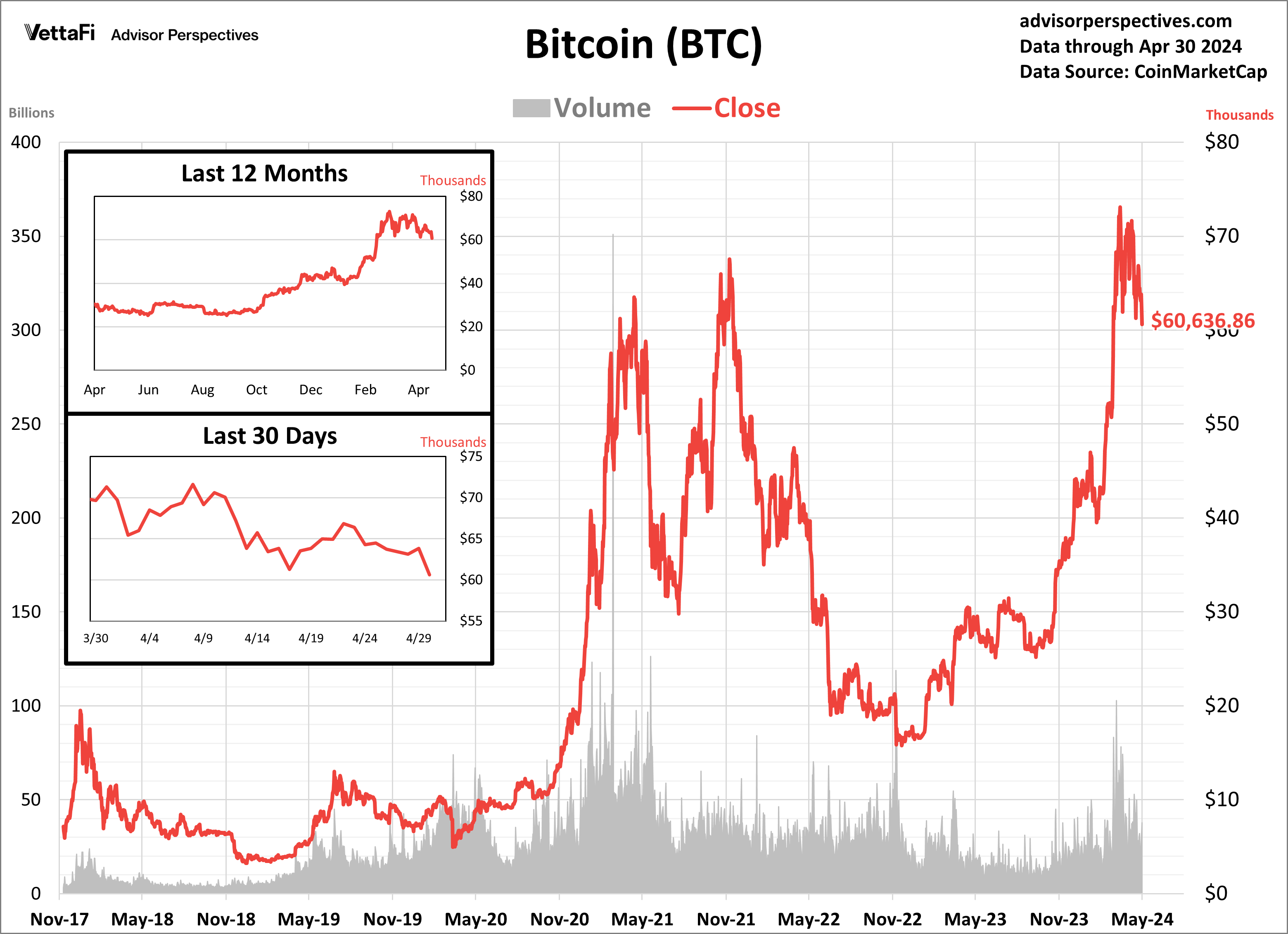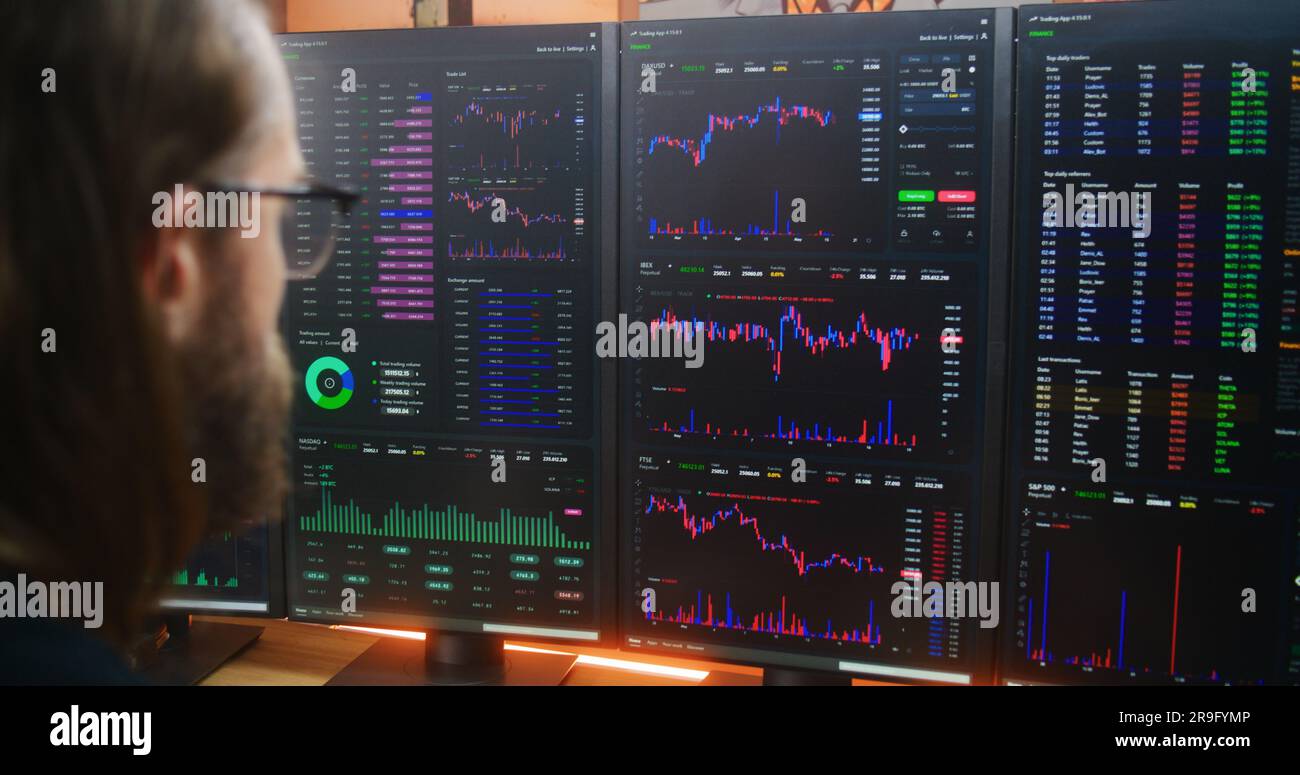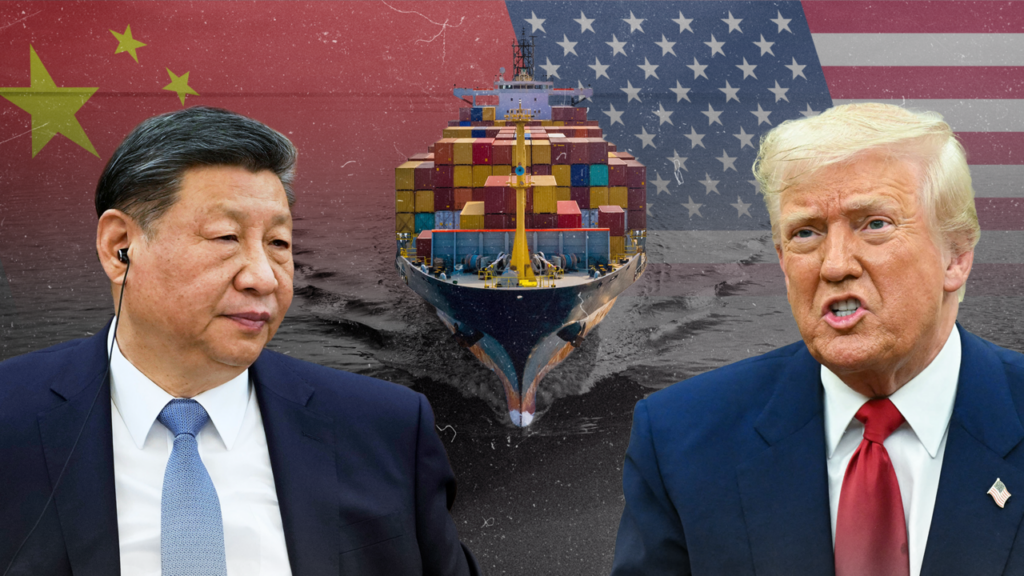Now Reading: Crypto Markets Tumble as Trump’s Tariff Bombshell Shakes Investors
-
01
Crypto Markets Tumble as Trump’s Tariff Bombshell Shakes Investors

Crypto Markets Tumble as Trump’s Tariff Bombshell Shakes Investors
The cryptocurrency world was thrown into chaos Thursday morning as digital assets tumbled across the board following former President Donald Trump’s bombshell tariff announcement. The sweeping trade restrictions sent shivers through global markets, with crypto investors rushing to offload riskier assets amid growing economic uncertainty.
Crypto exchange giant Coinbase Global took a brutal hit, with shares plummeting nearly 4% to $82,000 in premarket trading. Meanwhile, MicroStrategy, known for its massive Bitcoin holdings, saw its stock value shrink by 3% as investors began questioning the wisdom of crypto-heavy portfolios in this new economic landscape.
:max_bytes(150000):strip_icc()/COINChart-bffe8e67b1f54480a0c5b142f412cbe9.gif)
Mining Companies Face Double-Digit Losses as Bitcoin Slides
The bloodbath wasn’t limited to exchanges. Cryptocurrency miners were among the hardest hit in the sudden downturn, with MARA Holdings, Riot Platforms, and Bitfarms watching helplessly as their share prices crumbled by approximately 4%, 5%, and 6%, respectively. These companies, whose fortunes are directly tied to cryptocurrency values, have become canaries in the coal mine for broader market sentiment.
Bitcoin, the flagship cryptocurrency that had been enjoying an extended bull run, suddenly shed 2.3% of its value, retreating from previous highs around $85,000. Ethereum didn’t fare any better, losing nearly 3% to trade at $1,823, while XRP fell 2.21% to settle at $2.05. But it was Solana (SOL) that experienced the most dramatic plunge, hemorrhaging over 9% of its value within hours of Trump’s announcement.

Trump’s Tariff Tsunami: What It Means for Global Trade
The market meltdown follows what analysts are describing as one of the most extensive tariff implementations in U.S. history. Trump’s plan includes a baseline 10% tax on all imports, a punishing 25% levy on foreign-made vehicles, and reciprocal duties at 50% of the rates imposed on American exports by other countries.
This economic sledgehammer will impact 185 countries worldwide, including Nigeria, which will now face a 14% tariff on its exports to the United States—a significant jump from previous rates. The Nigeria-U.S. trade relationship has been substantial, with exchanges totaling N31.1 trillion between 2015 and 2024, according to the Nigerian Bureau of Statistics.
The Crypto Paradox: Trump’s Pro-Crypto Stance vs. Economic Reality
What makes this market response particularly fascinating is the contradiction it highlights in Trump’s relationship with cryptocurrency. Despite the administration’s generally pro-crypto stance and vocal support for lighter regulation in the digital asset space, broader economic policies appear to be undermining crypto market stability.
“The price action highlights crypto’s hyper-democratic and borderless nature, allowing investors worldwide to hedge against the potential impact of macroeconomic uncertainties,” explained David Hernandez, a crypto investment specialist at 21Shares, in a note shared with Reuters. This suggests that despite the short-term pain, cryptocurrencies may still offer a unique value proposition during times of economic turbulence.

Opportunity Amidst Chaos? Expert Weighs In on Investor Strategy
Not all analysts see doom and gloom on the horizon. Marco Iachini, senior vice president of research at Vanda Research, suggests that crypto ETFs could actually benefit from the current market dynamics, potentially attracting retail investors looking for buying opportunities amid the chaos.
However, Iachini adds an important caveat: the prevailing market uncertainty could significantly slow down investment activity as many traders adopt a wait-and-see approach. For those considering diving into the crypto markets, the message seems to be one of caution rather than panic.
What’s particularly noteworthy is that crypto assets haven’t experienced losses as severe as some other market sectors, suggesting a potential resilience that could attract investors looking to diversify their portfolios during uncertain economic times.
What’s Next for Crypto Markets Under Trump’s Trade War?
As global markets adjust to the new reality of Trump’s aggressive trade policies, cryptocurrency investors find themselves at a crossroads. The coming weeks will likely determine whether this downturn represents a temporary blip or the beginning of a more substantial correction in digital asset values.
For now, many experts are advising investors to brace for continued volatility as markets digest the full implications of Trump’s tariff plan. With economic relationships between major global powers in flux, cryptocurrency’s role as both a risk asset and a potential hedge against traditional market turmoil will be tested like never before.

Whether you’re a seasoned crypto investor or simply watching from the sidelines, one thing is clear: the intersection of digital currencies, global politics, and economic policy has never been more consequential—or more unpredictable.












